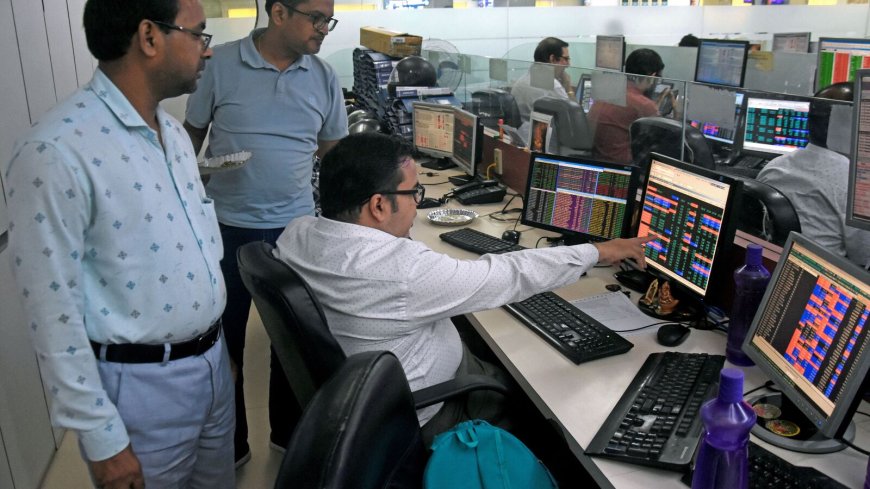Will the RBI rate cut push Indians to swap fixed deposits for stock market investments?
As RBI prepares for a rate cut, Indian investors may reconsider traditional FDs in favor of equities. Explore the potential shift in investment preferences.

RBI's Anticipated Rate Cut: A Turning Point for Indian Investors?
With inflation gradually easing and economic indicators pointing to a softening in monetary tightening, the Reserve Bank of India (RBI) is widely expected to initiate a rate cut cycle in the upcoming quarters. The possibility of lower interest rates raises a crucial question: will Indian investors start moving their money away from traditional fixed deposits (FDs) and toward higher-risk assets like equities?
Historically, Indian households have shown a strong preference for safer instruments, especially fixed deposits, which account for a significant portion of savings. But as returns from FDs begin to shrink in a low-rate environment, analysts believe there could be a noticeable shift in retail investment behavior.
Fixed Deposits: Safe but Losing Appeal
At present, major banks in India offer FD rates ranging from 6.5% to 7.5%, a relatively attractive proposition for risk-averse investors. However, once the RBI lowers the repo rate—which currently stands at 6.50%—banks are likely to follow suit by cutting deposit rates.
“A 50-75 basis point rate cut by the RBI could reduce FD yields below the inflation rate,” said Meera Arora, Chief Investment Strategist at FinEdge Capital. “When that happens, the real return becomes negligible or even negative. That’s when investors start exploring alternatives like mutual funds or direct equities.”
A Stock Market Already in Momentum
India’s benchmark indices, the Nifty 50 and Sensex, have been hovering near all-time highs, fuelled by robust corporate earnings, global liquidity, and a stable domestic macroeconomic environment. Retail investor participation is already at a record high, with over 145 million demat accounts opened as of May 2025, a sharp increase from pre-pandemic levels.
“A conducive interest rate environment will only add fuel to the fire,” noted Vikram Bhagat, Equity Strategist at Motilal Oswal. “Lower deposit rates reduce the opportunity cost of holding equities. If inflation remains under control, more money could flow into stocks.”
Mutual Funds and SIPs: The Middle Ground
Systematic Investment Plans (SIPs) have emerged as the preferred investment route for many first-time and cautious investors. In April 2025 alone, SIP inflows touched a record high of ₹19,200 crore, indicating growing faith in equities as a long-term wealth creation vehicle.
“Unlike a lump sum investment in stocks, SIPs offer discipline and rupee-cost averaging,” said Nandita Shetty, Fund Manager at Axis Mutual Fund. “For traditional FD investors, SIPs in balanced or hybrid funds can be a good stepping stone into the world of market-linked products.”
Risk Appetite Still a Limiting Factor
Despite the potential benefits, not all investors may be ready to switch to equities. Cultural and behavioral factors still play a significant role in investment decisions across Indian households. The safety and assured returns of FDs continue to be a psychological anchor, especially for senior citizens and conservative savers.
“Even if interest rates fall, a section of the population will continue to prefer the certainty of fixed returns over market volatility,” explained Ravi Kulkarni, a Mumbai-based financial advisor. “But younger investors and the salaried class are certainly more open to diversification.”
Digital Platforms and Financial Literacy: Catalysts for Change
The rise of fintech platforms has dramatically simplified access to stock markets and mutual funds. From mobile trading apps to robo-advisory services, investing is no longer confined to a niche segment.
Moreover, financial literacy campaigns led by SEBI and AMFI are gradually reshaping public perception about risk, return, and long-term planning. These initiatives are expected to further accelerate the migration from fixed-income to market-based products if rates fall.
Global Parallels: A Lesson from the West
In mature markets like the U.S., prolonged low interest rate regimes post-2008 led to a structural shift in household asset allocation. Equities, ETFs, and REITs gained massive popularity as savings yields dwindled. Indian markets, while culturally different, could see a similar—though more gradual—trend if the RBI’s rate-cutting cycle deepens.
Investor Outlook: What Should You Do?
For Indian investors, the decision to move from fixed deposits to equity markets should be guided by risk tolerance, investment goals, and time horizon. A blanket move is neither recommended nor practical.
Financial experts suggest a diversified approach:
-
Keep an emergency fund in FDs or liquid funds.
-
Start SIPs in equity or hybrid mutual funds.
-
Explore index funds for low-cost, long-term exposure.
-
Avoid speculative investments driven solely by FOMO (fear of missing out).
A Tectonic Shift or Gradual Drift?
The RBI’s eventual rate cut may not result in an overnight exodus from fixed deposits, but it certainly lays the groundwork for a slow and steady rebalancing of portfolios. As the traditional comfort of FDs erodes, the allure of market-linked growth could attract a new generation of Indian investors to equities.
Whether this results in a tectonic shift or a gradual drift remains to be seen—but the winds of change have certainly begun to blow.
What's Your Reaction?
 Like
0
Like
0
 Dislike
0
Dislike
0
 Love
0
Love
0
 Funny
0
Funny
0
 Angry
0
Angry
0
 Sad
0
Sad
0
 Wow
0
Wow
0












































































